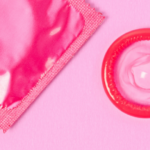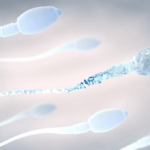Question
Can you get pregnant from pre-cum?
Answer
It only takes one sperm to fertilise an egg, and there are many reliable reports of sperm being in pre-ejaculate fluid[1]. These observations, together with the fact that the withdrawal method of contraception does not work 100% of the time1,[2] (even if it is done ‘perfectly’) suggest that yes, ‘pre-cum’ can cause a pregnancy.
What is pre-ejaculate fluid, where does it come from and what does it do?
Pre-ejaculate fluid is a clear, slippery fluid that often passes from the urethra (the hole in your penis that you wee out of) during sexual arousal, before you have an orgasm and ejaculate.
Pre-ejaculate fluid is made up of secretions from two sets of glands: the bulbourethral glands (also known as the Cowper’s glands), which are two pea-sized glands located underneath your prostate gland, on either side of the urethra at the base of your penis; and the urethral glands (also known as the Glands of Littré), of which there are many, along the length of the urethra in the penis.
The urethral glands produce mucus, which protects the cells lining the inside of the urethra from urine.
In addition to containing sperm, pre-ejaculate fluid may also contain human immunodeficiency virus (HIV) in HIV-positive people.
So, if you want to avoid HIV infection or pregnancy, proper use of a condom provides the best protection (that includes putting it on before any contact between your penis and your partner).













